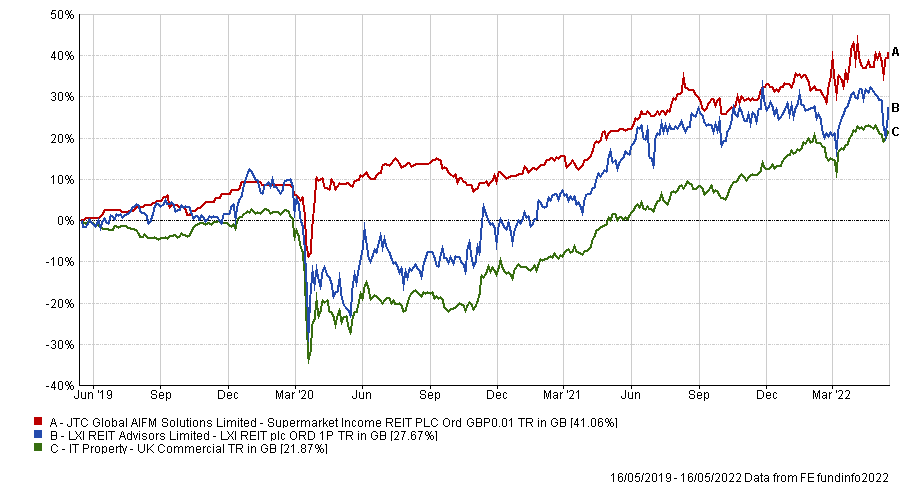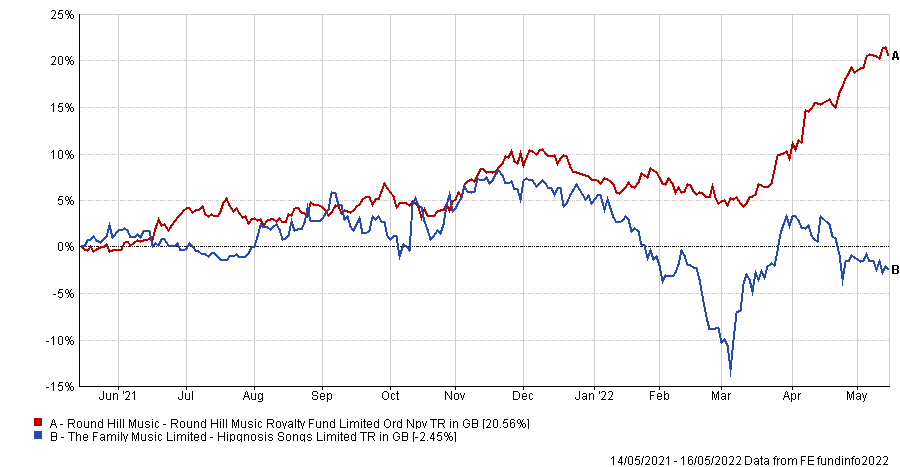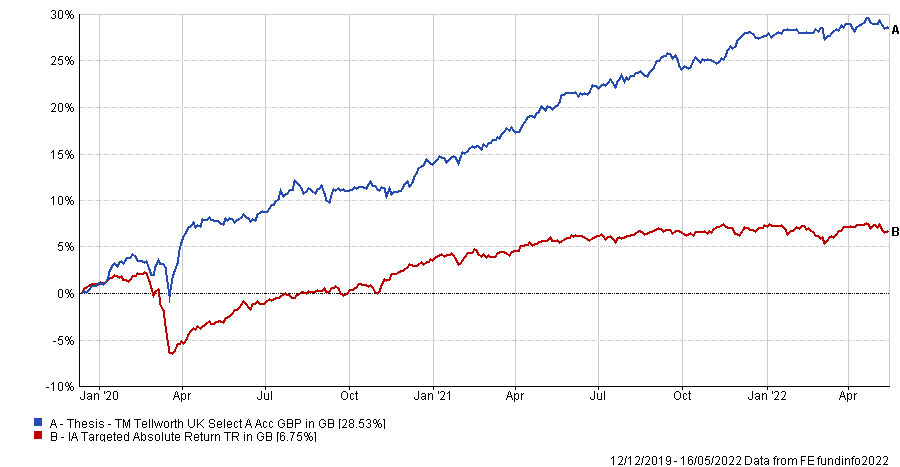In an era of high inflation, rising interest rates, a cost-of-living crisis and war in Europe, the BMO multi-manager team has struggled to find much to get excited about.
Across its range of portfolios, the team has gone underweight equities, having been overweight in March 2020 at the start of the pandemic and neutral for the remainder of 2020 and most of 2021.
It is also underweight fixed income, where rising yields (and therefore lower prices) means it is harder to make money.
It leaves little joy for investors, who may have traditionally aimed for a 60:40 portfolio split between equities and bonds.
But there is one other option: alternatives. This is the only broad asset class the team is overweight and below BMO multi-managers Kelly Prior and Scott Spencer outline some of their favoured options in this oft-overlooked bucket.
Property
While some investors may have been burned by open-ended property funds over the past several years, which were forced to close to stem redemptions or sell assets that they may otherwise have held on to, the team at BMO said this does not mean the asset class is a complete no-go area.
In fact, property makes up the largest part of the team’s alternatives portfolio, according to Spencer.
“We like real assets in this environment that are giving a good yield. It makes a lot more sense than bonds, which are challenged in an inflationary environment,” he said.
However, he said that the asset class is not liquid and therefore investors need to buy something that can control this.
“That gives us a bias towards investment trusts, as from our point of view we can buy and sell them, but it also means they are not forced redeemers or flooded with money and forced to sit on cash,” he said.
Their two favoured options in this space are LXI REIT and Supermarket Income REIT. The former has a “broad-brush” approach to property, including student accommodation, hotels, retail industrial care homes and other areas of the sector. The latter meanwhile focuses purely on supermarkets.
“They are quite different, with both targeting different areas. The key for both is we have been really impressed with the management teams and what they are doing,” Prior said.
“We ask: Do the management have a skillset and expertise, as well as the experience in this unique sector? Both of these do.”
The trusts both sit in the IT Property – UK Commercial sector and have been strong contributors over the past three years, returning 27.7% and 41.1% respectively.
Total return of trusts vs sector over 3yrs

Source: FE Analytics
Spencer said: “They both sweat the assets. It’s not about beta, i.e. buy property and it will go up. They’ve got limited assets and so it is how they make that work that will result in the best return on investment.”
Music
An area of the market that has become particularly fashionable in the past few years has been music royalties, with the introduction of investment trusts such as Hipgnosis Songs and Round Hill Music Royalty.
“It is a different type of asset but it has commonality to property in terms of the yield and the franchise value and asset value,” Spencer said.
Like property, he said that management teams need to “sweat the assets”, working hard to place their music catalogues in films, television and advertisements.
Although the former has a longer track record, the latter has been the stronger performer and is the one that the BMO team has backed. Additionally, the Round Hill portfolio has older songs, while the Hipgnosis catalogue is made up of newer names.
Total return of trusts vs sector over 1yr

Source: FE Analytics
“Round Hill has been doing it for a long time in the private equity space and have teams in London, New York, LA and know the people there,” he said.
“Both are in a growth area. Music streaming is going up. But we think Round Hill has the better alpha potential.”
Absolute return
Another area the team looks to is the absolute return space, which has come under pressure from investors over the years for failing to deliver a consistent return.
However, Spencer said Tellworth UK Select is a recent addition that he is keen on. Managed by Seb Jory, the fund was also a selection when the managers undertook our ‘perfect portfolio’ exercise.
It was taken over from Sanditon by Tellworth in 2019 and is Jory’s first fund. He is co-manager alongside FE fundinfo Alpha Manager John Warren and has an “interesting process”, incorporating the fundamental UK small-cap research of his colleagues with alternative data, such as Google Trends, which are then plugged into an algorithm.
He invests in UK stocks both by taking long and short positions but with a “market neutral” positioning and often invests in pairs: for example buying a stock in one sector that he likes while shorting another in the same sector that he does not.
Many fund groups and investors may have avoided the strategy when they first took charge, Spencer said, but those that got in early have been rewarded.
Total return of fund vs sector since manager start

Source: FE Analytics
“People either ruled it out because the prior performance was awful, it was a small fund or because it was a manager that had never run money, but from a process view we were happy to back it early and it has been slow and steady, which is what we want from an absolute return fund,” he noted.
Infrastructure
The last area is infrastructure, although Prior said that technically sits in the equity portion of the portfolio.
“It has a lower beta than the market but still goes up and down with the market. It is low correlation rather than no correlation, so we would not class it as an alternative. It is still equities at the end of the day. It is like owning a financials fund. You are still buying bank equities,” she said.
Here, the team’s preferred choice is Clearbridge Global Infrastructure Income, which Prior argued gives a different tilt to the traditional equity income funds available. “It offsets other equity income strategies that tend to be more value-stock driven,” she said.
The fund invests in infrastructure securities and has performed well in recent years, returning 68.7% over the past five years, the best return in the IA Infrastructure sector.
“The managers look at the cashflow of businesses and are constantly changing the portfolio. Not trading per se but recognising where things have matured into the price,” said Prior.
“It did really well pipelines this year and did well in 2021 from Sydney Airport, which got bought out, which shows you that the managers are really moving around the space.”
| Fund | Sector | Fund size | Fund managers (s) | Yield | OCF | Gearing | Premium/discount | Launch date |
| ClearBridge Global Infrastructure Income | IA Infrastructure | £1,211m | Nick Langley, Shane Hurst, Daniel Chu, Charles Hamieh | 3.9% | 0.85% | N/A | N/A | 01/07/2016 |
| Supermarket Income REIT | IT Property - UK Commercial | £1,232m |
Atrato Capital |
3.9% | 1.37% | 42.3% | 12.2% | 21/07/2017 |
| LXI REIT | IT Property - UK Commercial | £1,081m |
LJ Capital |
3.5% | 0.90% | 26.2% | 4.2% | 27/02/2017 |
| Round Hill Music Royalty Fund | IT Royalties | £40m |
Round Hill Music |
4.2% | Unavailable | 4.4% | 14.5% | 13/11/2020 |
| TM Tellworth UK Select | IA Targeted Absolute Return | £121m | John Warren, Seb Jory | Unavailable | 1.25% | N/A | N/A | 17/12/2014 |




